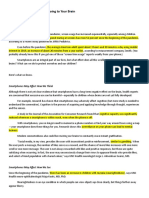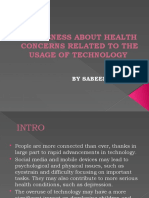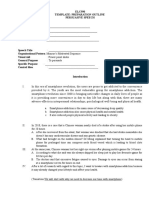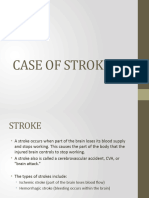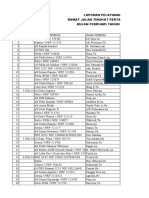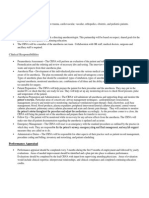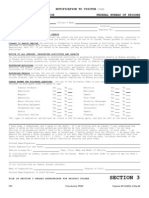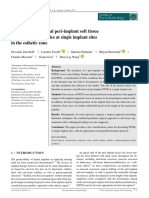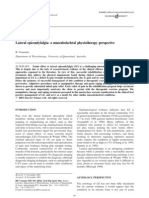0% found this document useful (0 votes)
7 views8 pagesAdverse Effect of Mobile Use
The document discusses the adverse health effects of mobile device usage, particularly its impact on self-directed learning, highlighting physical issues like musculoskeletal problems and psychological concerns such as anxiety and addiction. It outlines research objectives, methods, and findings that indicate how mobile use can impair cognitive function and motivation for learning. Recommendations for mitigating these effects include promoting awareness, moderation, and mindfulness in mobile usage.
Uploaded by
varsharuchi0000Copyright
© © All Rights Reserved
We take content rights seriously. If you suspect this is your content, claim it here.
Available Formats
Download as PDF, TXT or read online on Scribd
0% found this document useful (0 votes)
7 views8 pagesAdverse Effect of Mobile Use
The document discusses the adverse health effects of mobile device usage, particularly its impact on self-directed learning, highlighting physical issues like musculoskeletal problems and psychological concerns such as anxiety and addiction. It outlines research objectives, methods, and findings that indicate how mobile use can impair cognitive function and motivation for learning. Recommendations for mitigating these effects include promoting awareness, moderation, and mindfulness in mobile usage.
Uploaded by
varsharuchi0000Copyright
© © All Rights Reserved
We take content rights seriously. If you suspect this is your content, claim it here.
Available Formats
Download as PDF, TXT or read online on Scribd
/ 8













